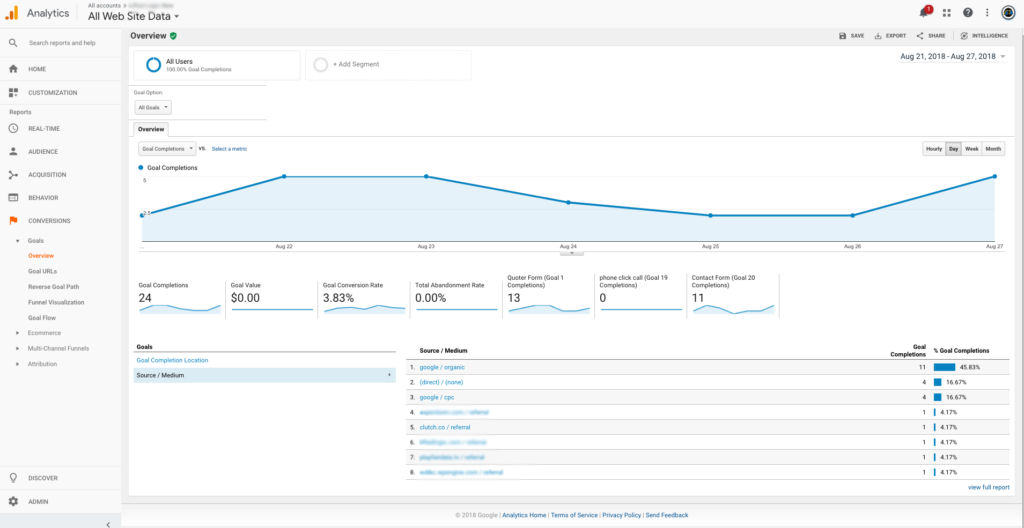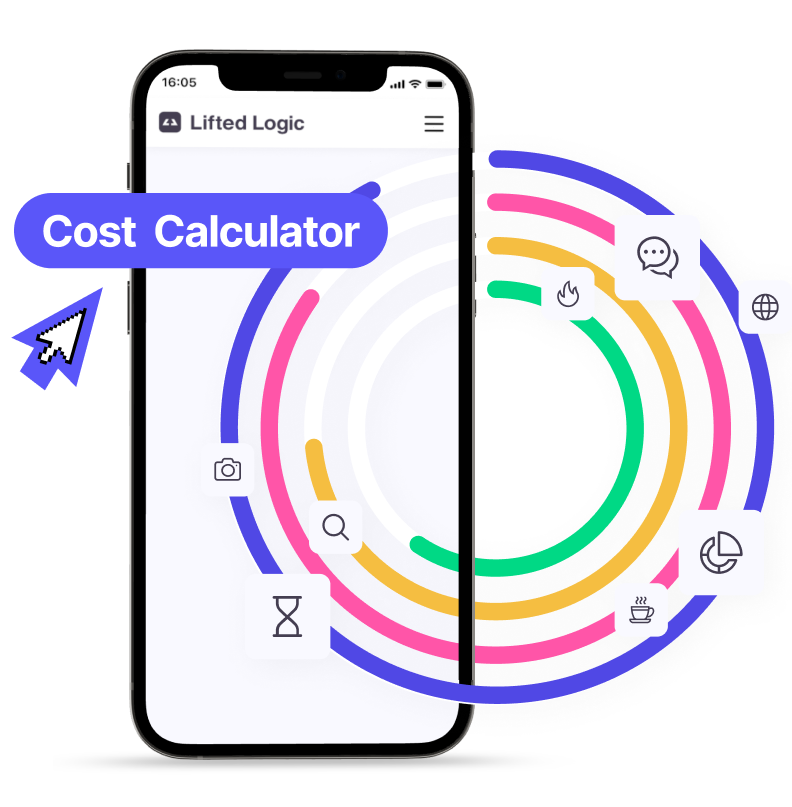For some time, there have been rumors of a magical, yet mystical, “quality score” used by Google to rate its users’ ads.
Many of us marketers always assumed there was a similar system for organic traffic, based on things like click-through rate, bounce rate, and more.
Now, there’s more evidence than ever to believe that Google is monitoring the quality of a site in order to determine which results to pull through on Search Engine Result Pages (SERPs).
Today, we’ll go over the changes to SEO in 2019 you need to know to make smarter choices for your website and business in general.
Recent Google Updates: Quality over Quantity
According to previous standards, the more “doorways” a user had into your site, the better chance he or she had of finding the “house.”
(Doorways being the keywords, keyphrases, and variations thereof you use to optimize each of your pages and blog posts.)
However, we now understand that Google actually prioritizes the quality of posts over the quantity.
Some SEO professionals have come to theorize that putting out more “feelers” may even hurt your site, rather than help it.
This is a huge change from what Lifted Logic has done in the past.
These doorways were always a huge part of our content strategy process with clients.
It dictated many of our content and design choices throughout the course of the project.

What you can do
What does this mean for your own website?
We’ll go over how you can adapt to these changes to SEO in 2019 to ensure you’re keeping up with the latest best practices and providing your users with quality content.
> Purge Old Blog Posts
Keeping outdated content on your site may be hurting your overall quality score.
If you have a lot of old content, versus less new content, your quality score will be “thinned out” across more pages.
Therefore, your site will be less likely to show up in search results, or it may show up lower in the ranks than competitors with updated, concentrated content.
We recommend checking all your site’s blog posts and deleting any irrelevant content, and updating relevant pages/posts that you think your users will still find helpful.
> Strategize New Blog Posts
This new update to SEO may mean a shift in your SEO Blogging strategy.
Rather than seeking out varieties of keyphrases, you may want to consider focusing on the quality of the content on your blog post and whether or not the post would satisfy the user’s search query.
Learn more about how to write SEO blog posts in 2019.
The good news about this new update is that you’ll actually feel less restricted than ever by arbitrary “search” rules.
You’ll feel it much easier to instead focus on providing the answers to your users’ questions in an authoritative way.
For example, Lifted Logic has operated for several years on the idea that a page or post must be at least 300 words in order to be considered valid content.
However, this may not be as much of a contributing factor to getting organic traffic in 2019.
If the overall content on a page, including images and video, satisfies a user’s query and gets them to interact with your site, Google may still deem that content as relevant and useful, even if it doesn’t hit an arbitrary word count requirement.

> Update Your Site
Be sure to update the pages on your site in order to let Google know your site is constantly evolving and updating to provide the most up-to-date and relevant content to your users.
Almost every content management system (CMS) out there is able to track the most recent updates to each of the pages on your site, so you’ll be able to manage each of the updates to your site and be aware of when each page was last reviewed.
There are a few ways to “update” a page:
- New images (keeping in mind that they should be optimized for the keyphrase for that page)
- Relevant content, such as an additional paragraph of text
- New cross links, such as relevant blog posts that have gone up since the page initially went live

> Use (like, really use) Your Analytics
Use your Google Analytics account to track which pages and posts are performing (and which aren’t) on a monthly and quarterly basis to help guide your decisions on how to spend your time each month.
This can be as simple or as in depth as you’d like.
The key is to see your website as an organic, flexible tool at your business’s disposal, which can shift or change at any time to best suit your needs.
Some factors to consider when using analytics to determine your SEO strategy in 2019:
Bounce Rate
If a page or post has a high click-through rate (CTR) but a low Bounce Rate, you may want to consider why. How much time has the user spent on the page? Did they immediately leave, or get the answer to the question they were looking for? Did the post help guide them to other useful and relevant content on your site through internal linking? This may help inform your decision on which content to focus on updating or adding first.
Average Duration per Session / Pages per Session
If your site has a low “Pages per Session” benchmark or an Average Duration per Session of less than a minute and a half, it may be time to revisit your keyphrases. Do your products and/or services match the intention of what someone hopes to find using the keywords you’ve optimized for? Perhaps the page they landed on gave them the answer they were looking for, but did not feel compelled to continue spending time on your website. Include additional crosslinking to help users more easily flow through your site and find answers to any other questions they may not have initially thought to ask you.
Source: Direct Traffic
Are users bookmarking your content or typing in a direct URL? That kind of behavior tells Google your site is relevant enough for a user to remember and repeatedly reference. It’s not bad if you do not have any direct traffic, but you should be getting at least some. This usually starts by providing links to your website on print collateral, signage, business cards, and other materials you give out in-person or promote on social media.
Source: Organic
If your organic traffic is low, this may again be an issue with the specific keyphrases you’re using. Tools like Moz Pro will give you a general “difficulty” score for how hard it is to rank for specific keywords, and if your keyphrase is too broad, you may not be appearing as often as you’d like.
Another factor that contributes to low organic traffic is unexciting meta. Are both the meta title and meta description for each of your pages commanding enough to attract your users? Does it sufficiently provide a preview of what the page’s content will be about?
If your site was built by Lifted Logic, you’ll easily be able to skim through and update or edit these as necessary via the Yoast plugin, located within each page as its own component.

> Customer Feedback
When in doubt, ask your customers or clients for feedback. Are they finding your site and its content (including its blog posts) useful? Which pages do they use regularly on your site? Which ones did they use only once? What information would they like to see added?
Using an online survey platform may be useful to help track this information, but depending on the kind of interactions you have with your customers, you may want to consider asking verbally.
The Takeaway
As you’ve probably heard us say before, 99% of Google’s “best practices” don’t change.
Small tweaks and updates help improve their user experience, but the concept is, and will continue to be, the same: satisfy user search query intent, and you’re as good as gold.
You may have heard the story about how most SEO companies are like diets. If you haven’t, enjoy.
Need Help?
Lifted Logic is a web design company in Kansas City that provides SEO services for a wide variety of businesses and industries across the country.
We’ve been in Kansas City for over 10 years and have helped hundreds of clients see exponential increases to their leads by creating smart interfaces to reach potential customers. We are constantly working to educate the KC community on how to better use the web to grow their businesses. We even provide free ongoing training to our clients on subjects like WordPress, Blogging, and more.
Just one of the things we do to help our clients is to provide an in-depth SEO Audit.
We’ll dig deep into your site to ensure your site follows best practices and is able to be found by the right people.
If you’re interested in learning more about what we do and how your website is performing, feel free to reach out to us anytime and we’ll provide you with a free consultation to determine which option may be best for your business.





